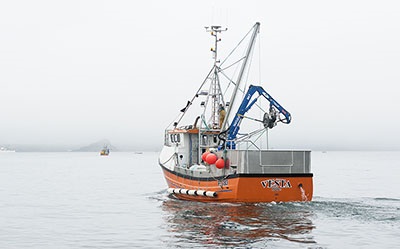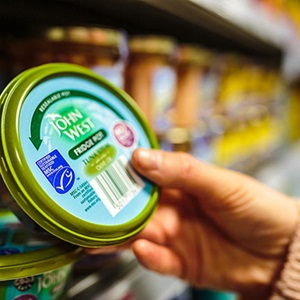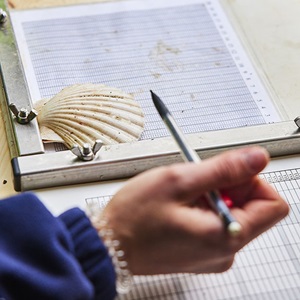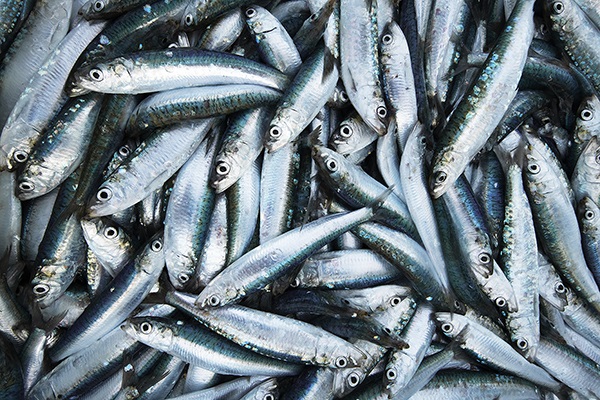Fishing is sustainable if it leaves enough fish in the oceans and minimises impacts on habitats and ecosystems. For this to happen, fisheries must be managed effectively.
Communities around the UK and worldwide rely on fishing for their livelihoods and as a vital source of food and nutrition. More than a third of the global population relies on seafood as a source of protein and 38 million people are employed in wild capture fisheries.
If we fish sustainably, we can secure food for the future and help eradicate poverty and hunger.
However, unsustainable fishing practices, such as overfishing, unregulated fishing activities and excessive bycatch, are putting our oceans at risk.
More than a third of global fisheries have been fished beyond sustainable limits and world demand for seafood continues to grow. Sustainable fishing can reverse this decline and ensure that there are enough fish left in the sea so that fishing can take place indefinitely into the future. The long-term health of fish stocks is also vital to secure a source of nutrient-rich food to feed a growing population. 16 million more tonnes of seafood could be produced every year if fisheries are managed sustainably, providing enough protein to meet the needs of 72 million people worldwide.
Certified sustainable wild-capture fishing can also reduce the pressure on land-based agriculture as a source of protein. Seafood also has, on average, a lower carbon footprint than land-based animal proteins.
Sustainable fishing has been embraced by fisheries and communities across Britain with Cornish hake, Shetland brown crab and Poole Harbour clams and cockles just some of an exciting range of fish and seafood to have achieved MSC certification in the UK and Ireland.
What is overfishing?
How can fishing be sustainable?
Scientists work out how many fish can be safely caught without impacting the future health of the stock. This involves collecting data on the size of the stock, when and where the species spawns and how many juveniles are likely to survive into adulthood. They also assess environmental factors that may affect the stock, such as predation from other species.
Different management measures can also be implemented to protect stocks from overfishing, such as prohibiting fishing during spawning seasons and setting size limits to protect juveniles.
A key aspect of sustainable fishing also involves adopting precautionary measures known as harvest control rules, which require catches to be reduced if the stock population declines. This is particularly important when stocks are shared by several different countries and a collective effort is needed to prevent overfishing.
Fish stocks are also more abundant when targeted by fisheries operating sustainably than those which do not.
“We need to manage fish stocks, globally, on a sustainable basis so they can continue to provide renewable, healthy, affordable and low-carbon protein for humanity.”
MSC Chief Executive Officer
How does sustainable fishing protect the oceans?
Sustainable fishing helps maintain healthy and diverse ocean ecosystems and minimises impacts on endangered, threatened, and protected species.All species have a unique role within ocean ecosystems and are part of a balanced food web of predators and prey. The loss of a single species due to overfishing or excessive bycatch can have a knock-on effect across the entire food web.
It’s not just fish stocks that benefit from a healthy ecosystem, it can also help the ocean regulate the climate. Carbon dioxide from the air dissolves into seawater and is trapped within different elements of the ocean ecosystem, such as seagrass, the shells of molluscs, and plant-like plankton.
Climate change is already having a significant impact on our oceans and the health of fish stocks, making sustainable fishing more important than ever.
What is the MSC’s approach to certified sustainable fishing?
The Marine Stewardship Council recognises and rewards fisheries operating sustainably through our fisheries certification program and label.
Our Standard is the leading measure of sustainable fishing and is rooted in global best practice in fisheries management and widely accepted fisheries science.
Fisheries volunteer to be assessed against our Standard by an independent third-party and must meet the three principles of our Standard:
1. Sustainable fish stocks
The fisheries must leave enough stocks in the sea so that they can reproduce and fishing can go on indefinitely.
2. Minimising environmental impacts
Fishing needs to be managed so that the marine environment, including plants, animals and habitats, can flourish.
3. Effective fishery management
They must have good management in place, comply with relevant laws and be able to adapt to changing environments.
Sustainability is about the future
The sustainability of a fishery is an ongoing process. After fisheries are certified to the MSC Standard, they are regularly reassessed and many are required to make further improvements. Scientific knowledge also improves all the time and fisheries are encouraged to develop new ways of conserving marine resources for future generations.
The Shetland crab and scallop fishery has been certified as sustainable since 2012. Working closely with Shetland UHI (previously the NAFC Marine Centre) on scientific evidence of stock management, its proactive management approach has led to some positive developments in managing and sustaining this important UK fishery. In the past decade, it has been fully reassessed and undergone a number of surveillance audits.
“It’s such a small community here, that scallop fishing keeps everything going, if we can get it sustainable, we actually have a future. The seafood industry is everything here.”
Whalsay scallop fisherman
Learn more

What is overfishing?
More than a third of the world’s fish stocks are overfished today, the need to protect our oceans has never been more urgent.

What does the blue MSC ecolabel mean?
The blue MSC ecolabel is the world’s most recognised label for sustainable seafood.

The MSC fisheries standard
The Standard reflects the most up-to-date understanding of internationally accepted fisheries science and management.

